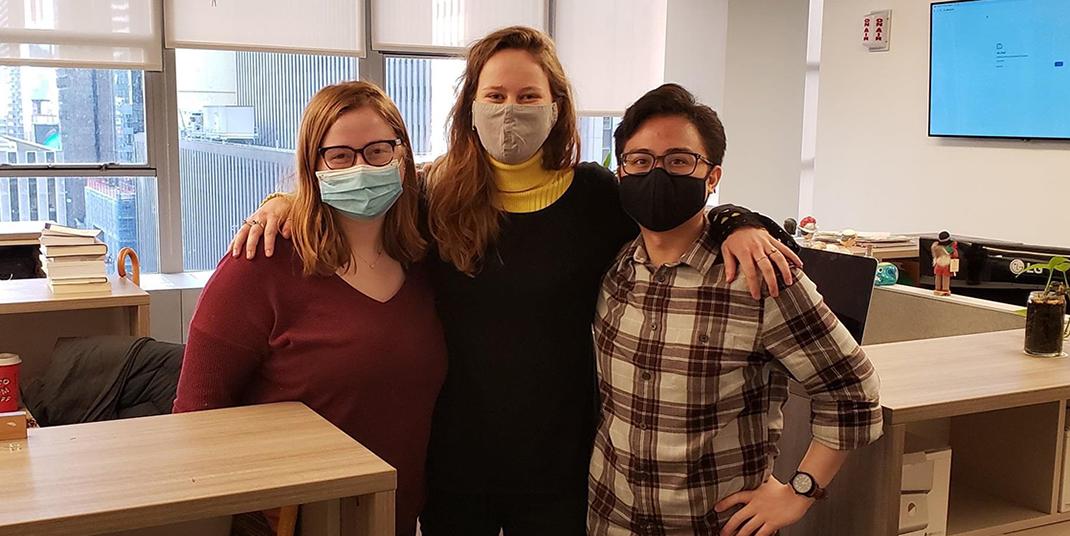Molly Cahill (far left) with two other O'Hare fellows (also her roommates) in the offices of America magazine.
Getting a job, like so many things, doesn’t always happen the way we think it will.
Last March, as COVID-19 spread fear and panic across the U.S., members of the Class of 2020 were forced to leave campus. Some went home to their families, while others secured off-campus apartments in Boston, unsure of how long the lockdown would last.
“There was so much uncertainty,” recalled Avni Amin ’20. “We really wanted to hold on to what we were losing.”
In addition to forgoing Commencement and Senior Week traditions, students began to worry about losing internships and early job offers. In response, the Career Center stepped up its virtual services, helping seniors navigate the increasingly difficult job market from home.
“It was a difficult time for everyone, but especially our seniors,” said Joseph Du Pont, associate vice president for Career Services. “Our message to them was, ‘Yes, it’s harder now, but you shouldn't give up, and we’re here to help at every stage of the process.’”
A year later, the resilience of the Class of 2020 is on full display, along with the value of a liberal arts education in preparing students to succeed in a wide spectrum of careers. Whether they’re uplifting youth in Colorado, processing COVID tests, or coding the next Instagram feature, Boston College’s most recent graduates are making their mark in classrooms, laboratories, and home offices across the country.
"Preliminary survey results from our 2020 graduates show that 93 percent of them are employed, in graduate school, or are engaged in other meaningful activities,” reported Du Pont. "Others are still looking, and our staff is here to support them every step of the way, in addition to working with our current seniors. Given all the challenges of the past year, this strong showing is another testament to the power of a Boston College education.”
Pre-pandemic, Boston College students have consistently found solid professional footing whatever their field of study, according to the annual survey of graduates administered by the Career Center. In addition, in January, a GradReport ranking named BC the 11th best college nationwide for a bachelor’s degree based on postgraduate salary data.
But in a year when so much was upended, positive stories of "where Eagles have landed" are especially heartening. Below, members of the Class of 2020 describe transitioning from student to working professional during lockdown, and how their Boston College degrees prepared them for the challenge.
Anabel Johnson ’20
Youth engagement coordinator at Mountain Youth
To land her job at Mountain Youth, Anabel Johnson had to impress a uniquely discerning interview committee: six high school students from Eagle River Valley in Colorado.
“It was definitely nerve-wracking,” she recalled with a laugh. “Teenagers can come across as judgmental even when they’re not, but my role is working directly with them, so it made sense that they were the ones interviewing me.”
Empowering and supporting young people under 25 is at the core of Mountain Youth’s mission, and now it’s Johnson’s full-time job. As the nonprofit’s youth engagement coordinator, she works side-by-side with middle and high school-age youth to develop programs, events, and projects that tackle the specific challenges they and their peers face—from substance abuse and depression to staying motivated at school during a pandemic.
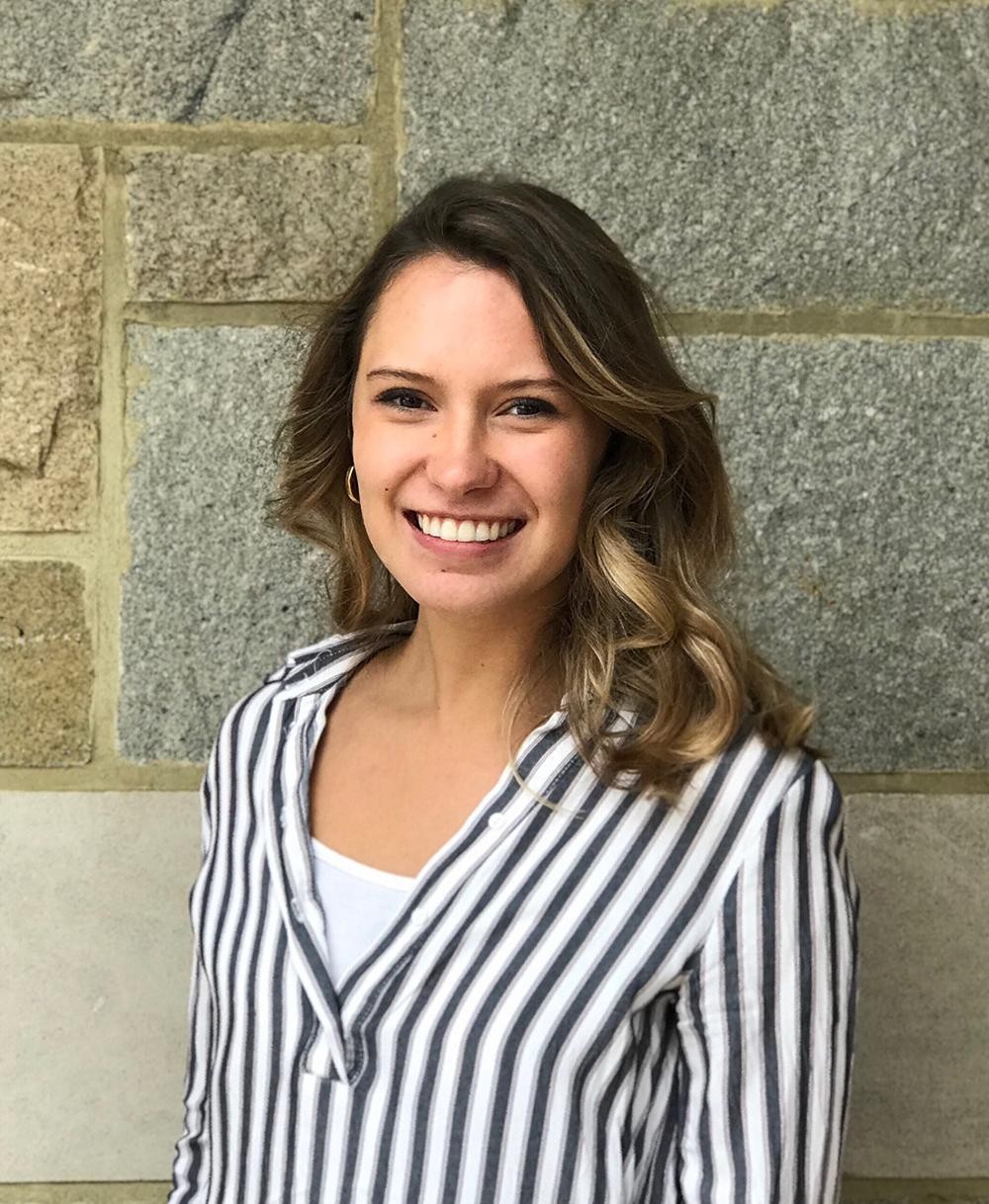
Anabel Johnson
As the adult advisor of Mountain Youth’s Valley’s Voice program, Johnson helps young people identify their interests by developing “passion projects.” Recent examples include an Instagram account normalizing mental health support and a COVID-19 response project emphasizing the seriousness of the pandemic for 19- to 25-year-olds.
“Allowing youth to find their passions is big for me,” she said. “And once they do figure out what they want to work on, these projects reach hundreds of youth I don’t work with directly.”
As a theater major at Boston College, Johnson grew accustomed to the odd hours that come with show business, as well as the organization and creativity required to plan and run successful events. She’s putting those skills, and more, to work at Mountain Youth, while learning how to avoid the burnout that can sometimes accompany nonprofit work.
“My fellow stage managers taught me so much about hard work and perseverance and staying passionate about what you do,” she said. “I think the most important thing is doing what you love, and I am really loving this job right now.”
John Abreu ’20
Software engineer at Instagram
On his LinkedIn profile, John Abreu is a software engineer at Instagram, but ever since he joined the social media company last July, he’s also become the unofficial “Instagram hotline” for friends and family.
“I get questions like ‘Why did they change this?’ or ‘How do I send a message to someone who’s private?’” he laughed. “I’ve become the go-to guy for pretty much everyone I know.”
Abreu’s team works exclusively on Reels—a recently-released feature that allows Instagram users to record and edit 15-second multi-clip videos—making improvements and bug fixes based on user feedback and company goals. Most of Abreu’s code winds up on Instagram’s iPhone app, a fixture on the home screens of millions of people around the world.
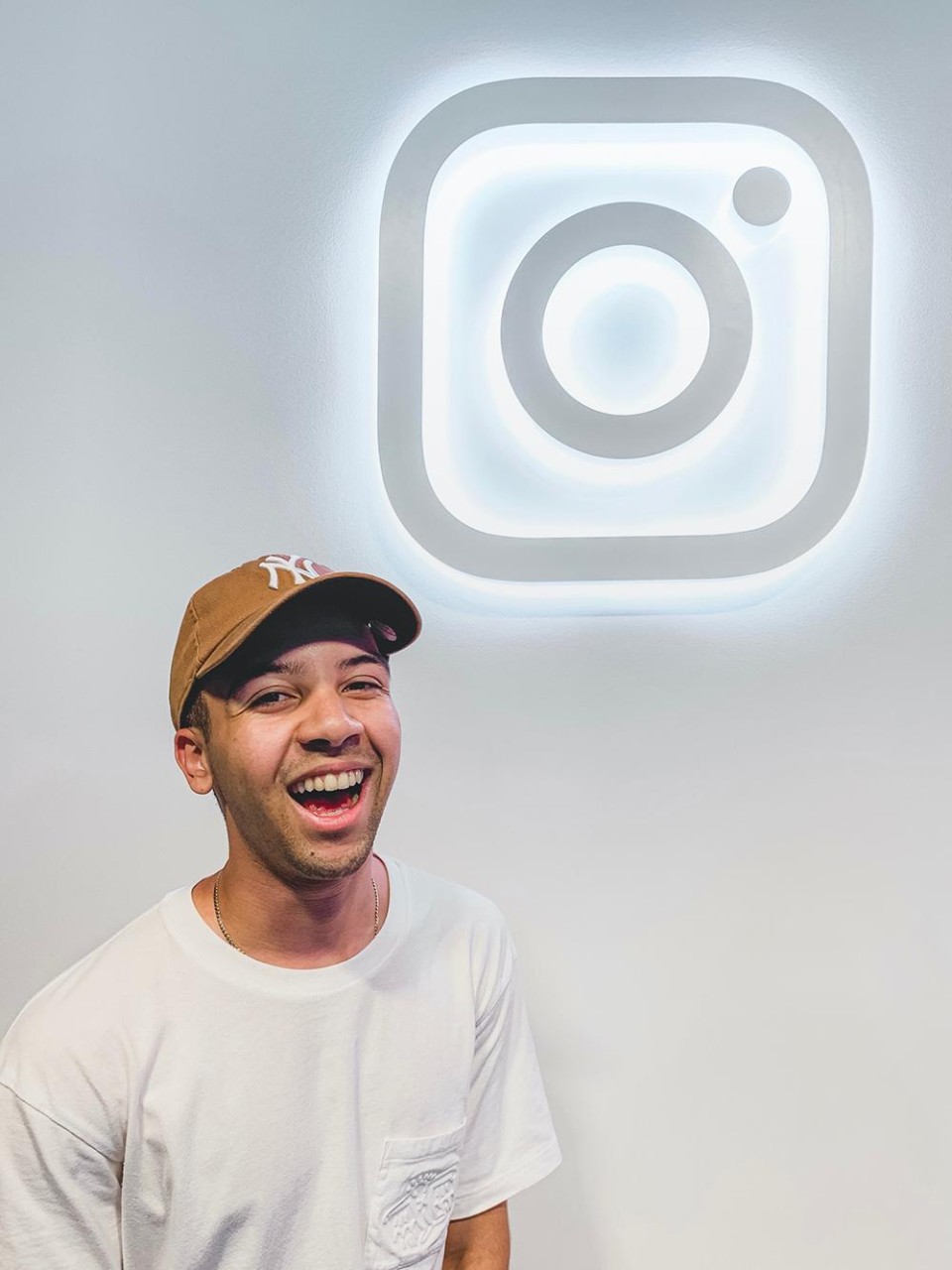
John Abreu
Being part of something new is familiar territory for Abreu. As a computer science major at Boston College, he helped launch the University’s first-ever hackathon, an “invention marathon” which grew from a 50-person gathering to a twice-annual event that attracts hundreds of students from across Boston. The summer before his senior year, he landed an internship at Instagram’s San Francisco office, where he worked on the recently-launched longform video feature, IGTV.
Computer science itself is a relatively recent love for Abreu, who originally planned to study film in college. He now channels his passion for videography and content creation into social media posts, sharing artfully curated snippets of his life in New York City and quarantine-themed graduation photos.
And while his current workspace (his apartment) doesn’t provide a backdrop on par with Instagram’s colorful headquarters, Abreu is grateful to be employed by a company he believes in.
“It’s clear to see the impact we’re having,” he said. “Seeing people in your close network really using the product because they find value from it is so satisfying for me.”
Avni Amin ’20
Program and community coordinator at Stupid Cancer
This time last year, Avni Amin wasn’t sure what her first job would be, but she knew what she wanted to do: use her neuroscience degree to make a difference in healthcare, and continue the activism work she had begun at Boston College as a member of the FACES council and PULSE Program.
“I loved learning about the brain and I was always very drawn to working to uplift the voices of underserved populations,” she explained. “Both of those sides of my BC experience really influenced where I ended up.”
Her destination turned out to be Stupid Cancer, a nonprofit that, in its own words, “makes young adult cancer suck less.” As the program and community coordinator, Amin helps organize conferences, webinars, and digital meetups meant to support, empower, and sometimes just entertain the roughly 89,000 young people living with cancer in the U.S.
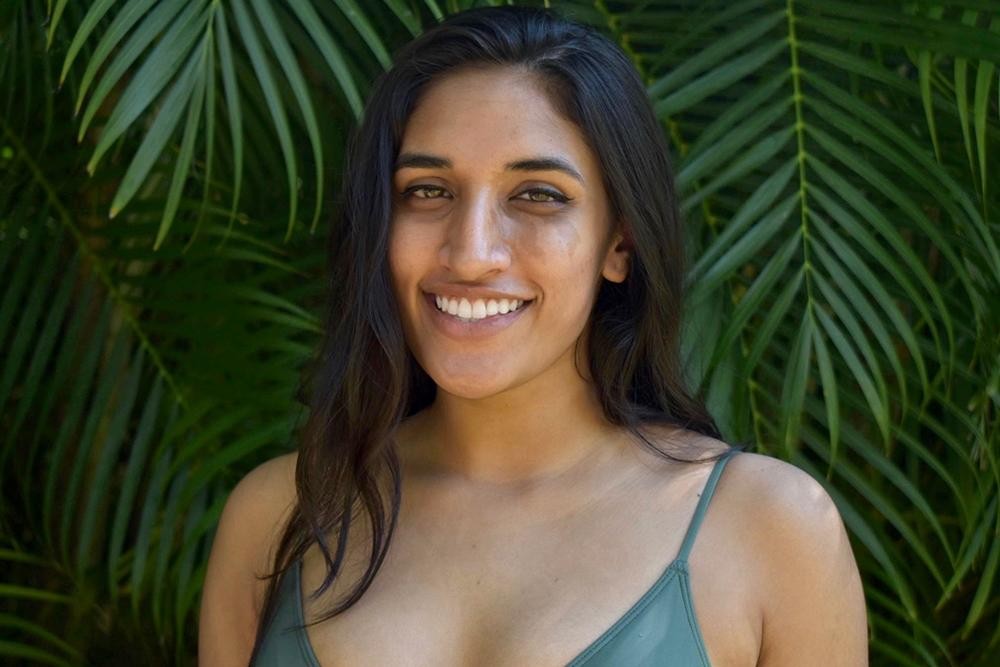
Avni Amin
Because their numbers are relatively small (just 5 percent of the overall cancer population is between the ages of 15 and 39) young adults with cancer are often underserved by large support organizations. Stupid Cancer’s programming is designed to resonate with a thirty-something grappling with a life-altering diagnosis: sessions on dating, sex, and infertility, and conversations around mental health and body image.
Pre-COVID, Stupid Cancer offered in-person meetups in addition to online ones, but its virtual programming has always been robust. Every week, Amin’s team hosts digital events where community members can connect and chat. Some are based around a topic or specific disease, while others are just for fun.
“There are happy hours and video-game type meetups and sessions where they can log on and have a drink and paint,” Amin explained. “These aren’t support groups, they’re more like social gatherings.”
As part of her community outreach responsibilities, Amin speaks often with Stupid Cancer regulars as well as healthcare providers and other nonprofits. Those conversations—working with a survivor on a blog post or connecting a caregiver to resources—have helped her develop a deeper understanding of, and admiration for, the demographic she serves.
“I love knowing that I logged off and might have done something to make someone smile,” she said. “Even small interactions with the community can affirm their experience—that’s the most fulfilling part of it for me.”
Madeleine McCullough ’20
Program associate at Partnership for Public Service
Watching insurgents storm the U.S. Capitol on January 6 hit close to home for Madeleine McCullough, not just because of her physical proximity to the attack, but also her work promoting and uplifting federal government employees.
“I’m part of an organization whose goal is to inspire people to believe in public service and the idea that your representatives can and are speaking for you,” explained McCullough, a program associate at the nonpartisan Partnership for Public Service. “This clearly showed that a lot of people don’t believe that.”
McCullough moved to Washington, D.C. last fall, just a few months before the presidential election, and immediately began immersing herself in the complex network of federal agencies that regulate everything from agriculture to military operations. As part of the partnership’s workforce team, her biggest priority is helping those agencies improve employee engagement, which lags significantly behind the private sector, by providing them with research and training.
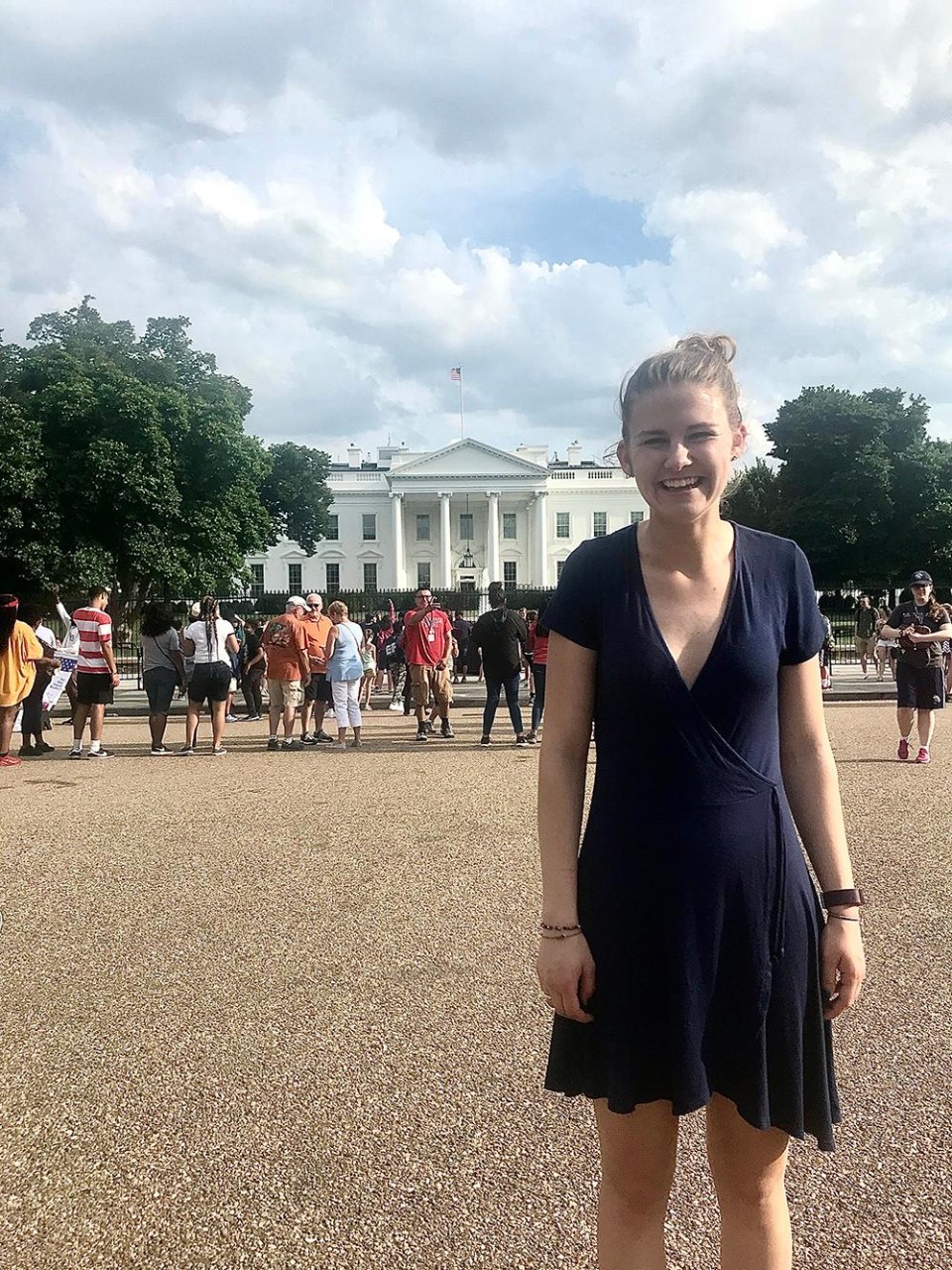
Madeleine McCullough
She’s also focused on bringing the next generation of public servants on board. The partnership offers fellowship opportunities for recent college grads to experience the work for themselves, while learning from long-term employees who have dedicated their careers to making a difference.
“We emphasize that if service is something you’re passionate about, and you want to be involved in something larger than yourself, the federal government is actually a great place to start,” said McCullough.
At Boston College, McCullough studied political science and economics while participating in student government and singing in the Common Tones acapella group. She considers all elements of her college experience equally valuable in preparing her for a career spent in constant conversation with others.
“That’s something BC does well, that encouragement to get to know other people and be able to work with them in any type of situation,” she said. “I was exposed to people from a lot of different backgrounds and encouraged to develop connections with all of them.”
An internship in 2019 at the Food Research and Action Center solidified her goal of living and working in D.C., and despite being in lockdown since her arrival, she’s pleased with where she’s ended up.
“I didn’t know anything about the partnership when I initially applied, but they occupy an interesting niche within the policy world that I hadn’t considered,” she said. “I’m happy to be part of it.”
Mir Ali ’20
Clinical genomic technologist at The Jackson Laboratory
As a biology major at Boston College, Mir Ali didn’t expect his skill set would make him a frontline worker during a global pandemic. But within a week of graduating, Ali was donning head-to-toe protective gear helping to process thousands of COVID-19 tests for anxious Connecticut residents.
A clinical genomic technologist, Ali takes the nasal swabs submitted by clinics across the state and prepares them for RNA extraction—a process that detects the presence of the SARS-CoV-2 virus. In May, Ali and his colleagues were doing much of the work by hand, while simultaneously developing robotic systems to speed things up. By summer, they had increased the lab’s output tenfold, processing nearly 10,000 samples a day, with a turnaround time of 24 hours or less.
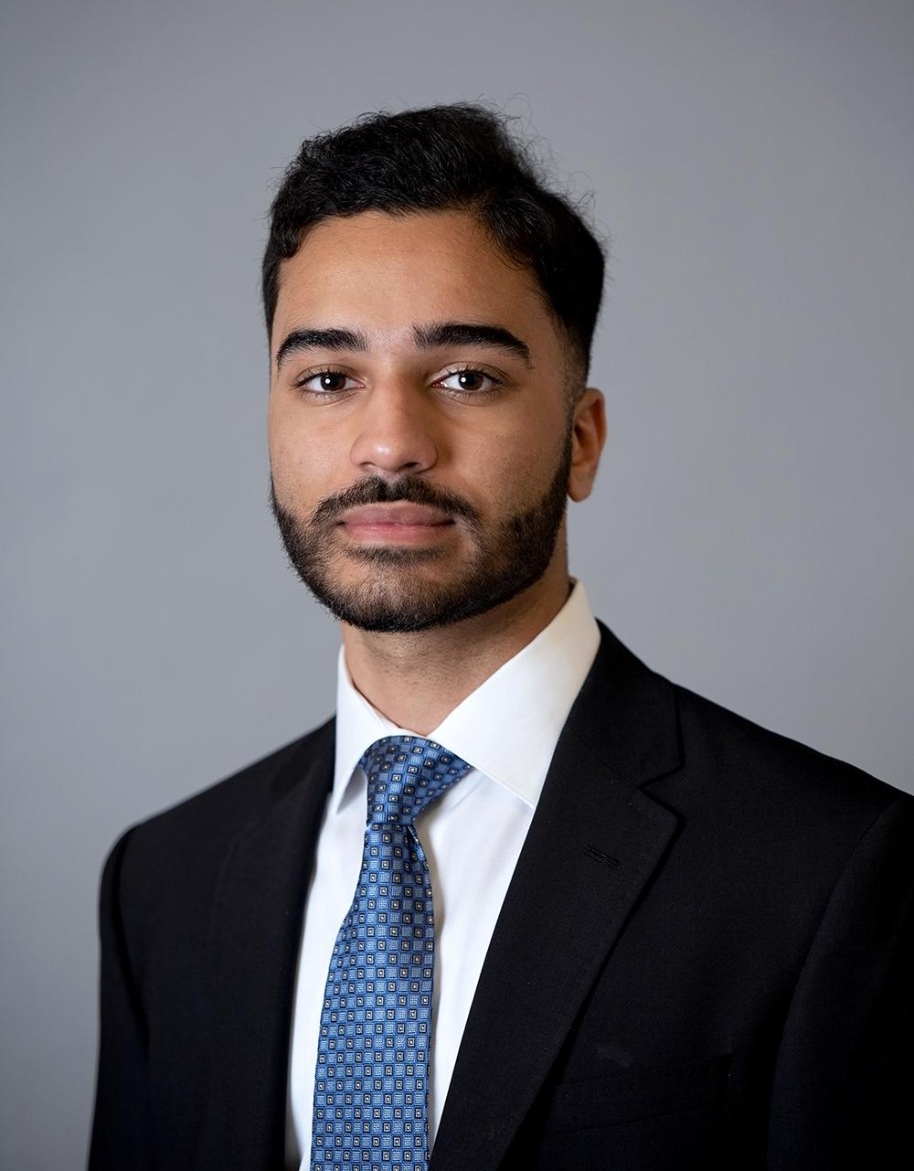
Mir Ali
Throughout the pandemic, public health officials have continually emphasized the importance of frequent and rapid testing in keeping cases under control. In January, Ali’s team was producing 20 percent of Connecticut’s test results, providing valuable data to scientists and the public.
“For me, it’s really rewarding and humbling to be able to shed light on the spread of COVID through the state,” said Ali. “I did this stuff in my undergrad lab but I never thought it would be to this scale.”
A lot has changed since Ali first stepped foot in the Jackson Laboratory last May. In addition to automating much of the testing process, his team has grown more comfortable handling samples of the virus that has killed more than 500,000 Americans.
“At the beginning, it was really scary,” Ali acknowledged. “People were spraying Lysol on their groceries—no one really knew what the transmission was in terms of touching surfaces. Now if I get a little bit of sample on my gloves, it’s not a big deal. Just spray it with ethanol, throw my gloves in the biohazard waste, grab a new pair, and get back to work.”
When COVID testing lessens, Ali’s lab will begin working on tests related to other illnesses, such as the flu, respiratory diseases, and potentially cancer. The pressures of the pandemic will be removed, although for Ali, they’ve given him confidence that he can handle whatever comes his way.
“BC really prepared me for this,” he said, “both from a science perspective but also knowing how to deal with responsibility and how to be a professional.”
Molly Cahill ’20
O'Hare fellow at America magazine
Since joining America magazine last fall, Molly Cahill has written about everything from the origins of Halloween to NASA’s discovery of water on the moon, all through a Jesuit, Catholic lens. Her byline appears regularly in the weekly magazine’s print and digital publications, attached to news articles, film and book reviews, and personal essays read by 35,000 subscribers across the country.
Cahill was awarded the prestigious O’Hare Fellowship shortly before lockdown, guaranteeing her 11 months of employment at the magazine’s office in Manhattan. (This March, two members of the Boston College Class of 2021 were named O’Hare Fellows for this coming fall.) When America’s normally bustling newsroom closed due to COVID, Cahill and two other fellows formed their own unofficial headquarters in a nearby New York apartment, learning the ins and outs of professional journalism from a distance.
“At the beginning we did a rotational program where we worked on all the different content teams that America has,” explained Cahill. “I got to learn about audio and video, our social media and digital communications, things I didn’t really know about when I came into this.”
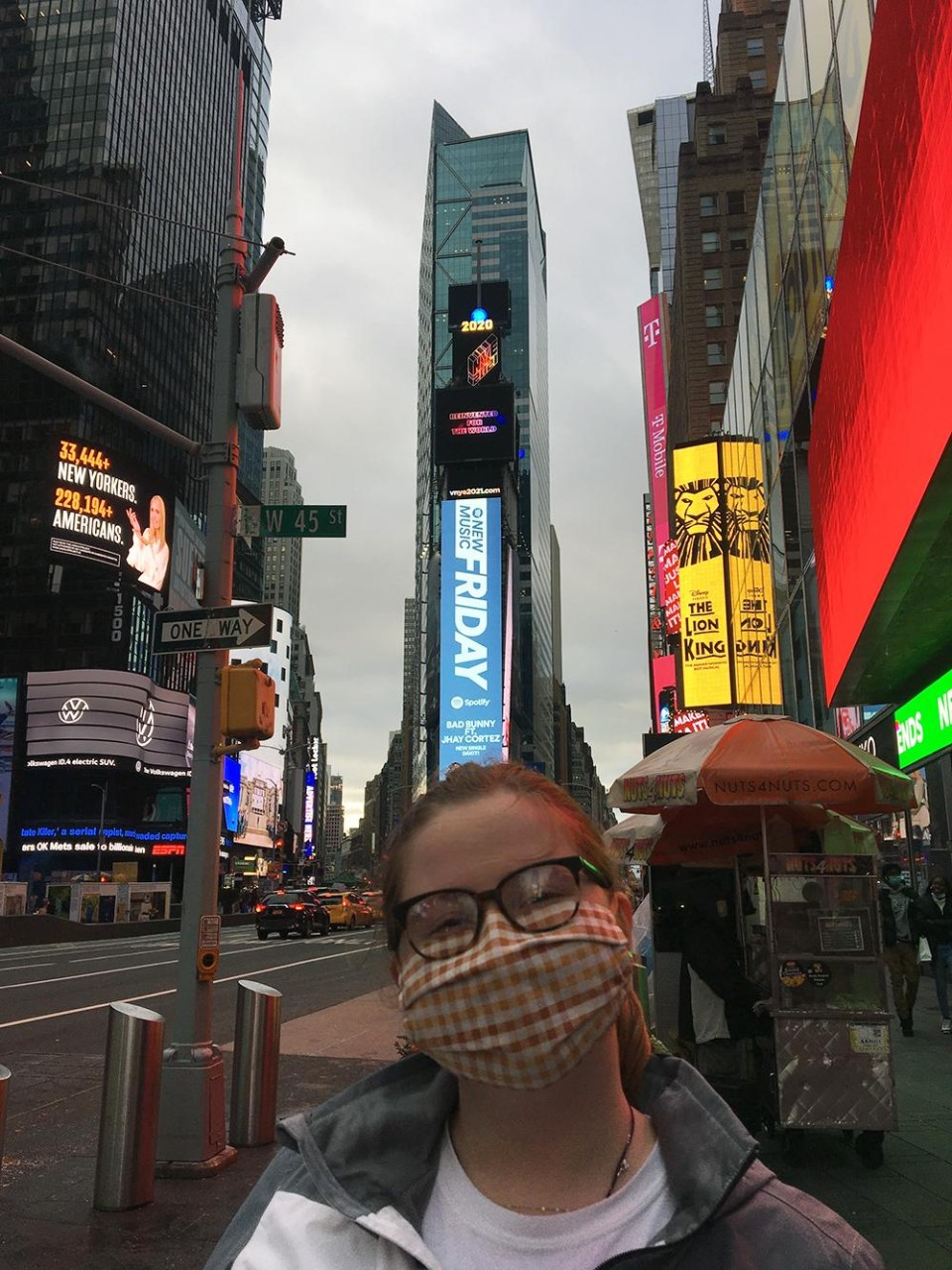
Molly Cahill
She eventually settled in as part of the editorial planning team for the magazine’s faith and op-ed sections, churning out news articles on the presidential election and editing pieces submitted by outside contributors, some of whom are experts in their field.
“Helping other authors refine their work before it’s published has been a surprising new love for me,” she said, “and I think it’s made me a much better writer.”
As a non-English major (she studied philosophy and theology at Boston College), Cahill almost didn’t apply for the O’Hare Fellowship, concerned that her writing skills wouldn't be up to par. But after speaking to an alumnus who works at America, she realized many of her course assignments could actually double as writing samples for her application.
“In my papers I was talking about current events that relate to things that are difficult to talk about, like the sex abuse crisis and how the church treats women.” she said. “Those assignments and seminar discussions set me up perfectly.”
When her fellowship ends in June, Cahill hopes to land a full-time journalism position where she can continue to build on the skills she honed at America, perhaps even from a post-pandemic newsroom.
“I love the fast pace of what we do,” she said. “There are so many moments where I know that what I’m working on is not only current, but that people want to read it. I want to stay in that type of world.”
Alix Hackett | University Communications | April 2021




